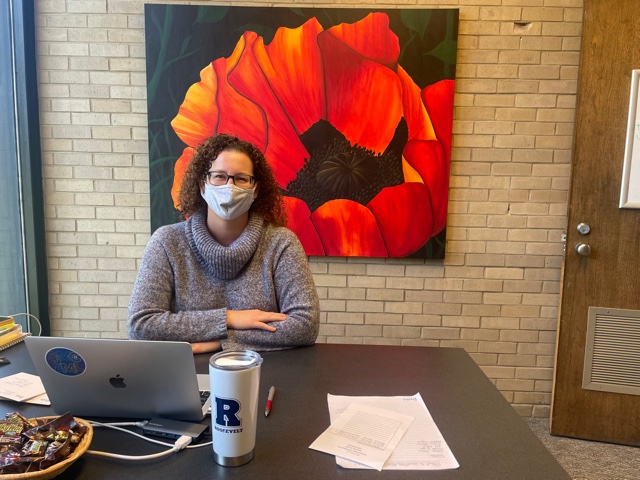On Nov. 9, Drake released a statement asking all university employees — including full-time faculty, part-time faculty and student employees — to submit proof of COVID-19 vaccination by Nov. 23 as part of its efforts to comply with an emergency temporary standard (ETS) released by the Occupational Safety and Health Administration (OSHA) on Nov. 4.
Another statement released by Drake on Nov. 16 asks that unvaccinated employees begin their vaccination regimen by Nov. 23 for the Moderna vaccine, Nov. 30 for the Pfizer vaccine, and Dec. 21 for the single-dose Johnson & Johnson vaccine in order to be considered fully vaccinated by the Jan. 4 deadline stated in the ETS. An individual is considered fully vaccinated two weeks after they have received their second dose of the Pfizer or Moderna vaccines or two weeks after they have received the single dose of the Johnson & Johnson vaccine.
The ETS requires that employers with 100 or more employees enforce a mandatory COVID-19 vaccination policy or require unvaccinated employees to undergo weekly COVID-19 testing and wear a mask. Drake’s statement did not disclose whether unvaccinated employees would be permitted to undergo weekly testing in lieu of vaccination.
Jurisdictions across the country have passed legislation that conflicts with the OSHA ETS. In late October, Iowa Governor Kim Reynolds signed legislation into law that allows employees to opt out of employer-mandated testing if they can provide a statement of medical exemption. Additionally, the Fifth Circuit Court of Appeals, which includes Texas, Louisiana and Mississippi, challenged the standard on “statutory and constitutional” grounds.
“I have a feeling that the federal court is going to find that OSHA overstepped their boundaries and they’re going to resend it,” Drake pharmacology professor and epidemiologist Brian Gentry said. “What does that mean for Drake? That means that they should probably be pretty cautious enforcing a mandate that the federal courts have rescinded, but that’s a political argument, not a scientific one.”
Drake’s administration said in the statement that “Drake continues to review the ETS and is monitoring pending legal challenges.”
According to a White House report, the mandate will serve to decrease the economic impact of COVID-19. The report also stated that a national vaccination requirement would decrease any anxiety employers might face when they weigh mandating vaccination against the risk of their employees leaving for another company.
“Increasing vaccination rates among workers by 20 percentage points or more — consistent with what vaccination requirements have been able to accomplish to date — would reduce the number of unvaccinated Americans by tens of millions of people, profoundly reducing the risk of COVID-19 to individuals and communities,” the report said.
According to the most recent Drake COVID-19 update, 85 percent of Drake employees have reported their vaccinations to the university. This includes approximately 900 faculty, in addition to both part-time and full-time student employees.
According to Gentry, a 100 percent vaccination rate is not realistic due to allergic reactions and other factors that hinder people from pursuing a vaccine, but some models suggest that a 80% vaccination rate may be sufficient to achieve herd immunity. However, these numbers are based on the transmission of influenza, not COVID-19.
Drake biology professor Eric Swafford said he will not be receiving the COVID-19 vaccine.
“I cannot pursue the vaccine for two reasons, primarily due to strongly held religious beliefs and secondarily to very negative physiological reactions to vaccines demonstrated over 20 years ago from a flu vaccine shot, which was the last time I had a flu vaccine,” Swafford said.
Another objection made by those who oppose vaccine mandates — both nationally and on a local level — is that they infringe on personal liberties.
“I understand the public health crisis, but you also have to understand that this is not the measles or polio,” Gentry said. “There were federal mandates for getting the measles vaccine and the polio vaccine — those are two very different, more aggressive diseases than this. It’s like comparing apples and oranges in a lot of respects. On the flip side of that, I will encourage everyone in the world to get their vaccine, but I guess I just don’t feel comfortable forcing everyone to.”
The OSHA standard also allows employers to require unvaccinated employees to take weekly COVID-19 tests instead. If Drake allowed employees to receive weekly testing rather than a vaccine, they could have the option of administering a home test or scheduling an appointment with a local health care provider, pharmacy or retail testing site.
Test Iowa, the state’s free COVID-19 testing program, offers at-home tests. Multiple sites for picking up and dropping off these tests are located in the Des Moines area, including in the Olmsted Center and the Polk County Health Department.
“I’m not aware of any capacity limits for COVID-19 tests in Olmsted,” Drake chief of staff Nate Reagen said over email. “We’ve been ordering a lot — and have not had an issue so far … Each day, we have at least 15 test kits picked up from the Olmsted desk and we expect that volume to increase as we get closer to the break next week.”
Students and faculty can submit proof of their vaccination through this secure online form.
Reagen declined a request for an interview about Drake’s response to the OSHA ETS at this time.









Grandpa Harley • Nov 20, 2021 at 10:28 am
Very comprehensive and well written.
Thanks for keeping us informed.